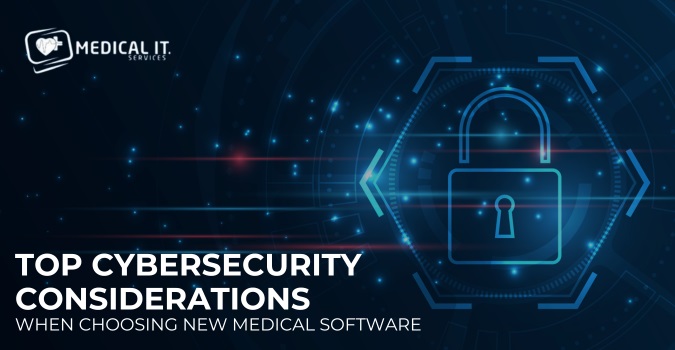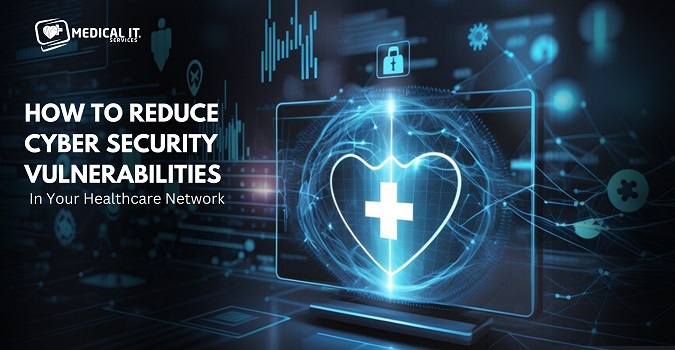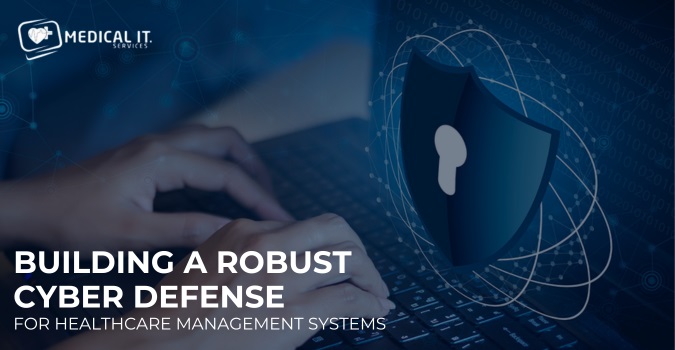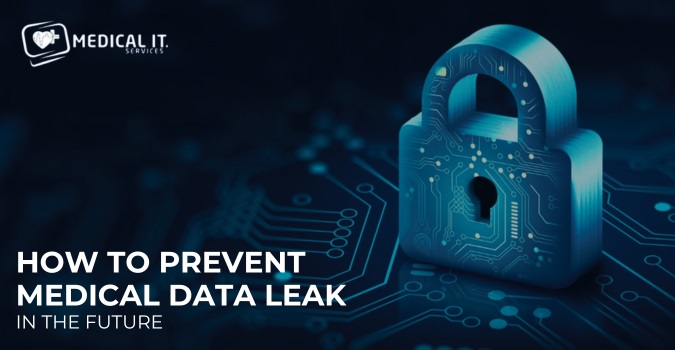In an age where digital transformation is reshaping healthcare, the importance of robust cybersecurity measures…

Top Cybersecurity Considerations When Choosing New Medical Software
The healthcare industry is increasingly reliant on medical software to manage patient data, streamline clinical workflows, and improve patient outcomes. However, this increased reliance on medical software also introduces new cybersecurity risks. With the rise of cyberattacks on healthcare organisations, it’s more important than ever to prioritise cybersecurity when choosing new medical software. Here are some key cybersecurity considerations:
Data Encryption
Why it matters: Data encryption ensures that patient information is converted into a secure format that is unreadable without the proper decryption key. This protects data both at rest (stored data) and in transit (data being transferred).
What to look for: Ensure the software supports strong encryption standards such as AES-256 for data at rest and TLS 1.2 or higher for data in transit. Check if the software offers end-to-end encryption for maximum security.
Compliance with Regulations
Why it matters: Healthcare providers are subject to stringent regulatory requirements like HIPAA in Australia, GDPR in Europe, and others, which mandate specific safeguards to protect patient information.
What to look for: Verify that the software complies with relevant regulations and provides features that facilitate compliance, such as audit trails, access controls, and data encryption. Look for certifications and third-party audits that attest to compliance.
Access Controls
Why it matters: Proper access controls prevent unauthorised users from accessing sensitive patient data, reducing the risk of data breaches.
What to look for: The software should offer robust access control mechanisms, including role-based access control (RBAC), multi-factor authentication (MFA), and granular permissions settings. Ensure it can integrate with your existing identity management systems.
Data Backup and Disaster Recovery
Why it matters: Ensuring that data can be recovered in the event of a cyberattack, system failure, or other disasters is critical to maintaining operational continuity and data integrity.
What to look for: Look for software that includes automated backup capabilities, off-site backup storage, and a comprehensive disaster recovery plan. Verify that the recovery process is tested regularly and meets your organisation’s recovery time objectives (RTO) and recovery point objectives (RPO).
Threat Detection and Response
Why it matters: Early detection of security threats can prevent or mitigate the impact of cyberattacks on healthcare systems.
What to look for: Choose software that incorporates advanced threat detection technologies, such as intrusion detection systems (IDS), intrusion prevention systems (IPS), and continuous monitoring capabilities. Ensure there is an established incident response plan and that the vendor provides timely security updates and patches.
Vendor Reputation and Support
Why it matters: The reputation and reliability of the software vendor play a significant role in the ongoing security and performance of the software.
What to look for: Research the vendor’s history of security incidents and their response to them. Evaluate the quality of their customer support and the frequency and quality of software updates. Prefer vendors with a strong track record and positive reviews from other healthcare providers.
User Training and Awareness
Why it matters: Human error remains one of the most significant vulnerabilities in cybersecurity. Proper training can mitigate risks by ensuring that users are aware of security best practices.
What to look for: Ensure the vendor provides comprehensive training programs for users, focusing on cybersecurity awareness, secure usage practices, and recognizing potential threats. Consider ongoing training to keep staff updated on the latest security threats and practices.
Conclusion
Selecting the right medical software is a crucial decision that impacts not only operational efficiency but also the security and privacy of patient data. By prioritising these cybersecurity considerations, healthcare providers can significantly reduce risks and protect sensitive information.
Comprehensive Cybersecurity Considerations with MedicalIT.Services
For organisations seeking expert guidance in navigating the complexities of medical software selection, MedicalIT.Services offer specialised IT consulting services. Our team of cybersecurity experts can help you evaluate software options, ensuring you choose solutions that meet the highest standards of security and compliance. Contact us today to learn more about how we can support your healthcare technology needs.
Also Read:



